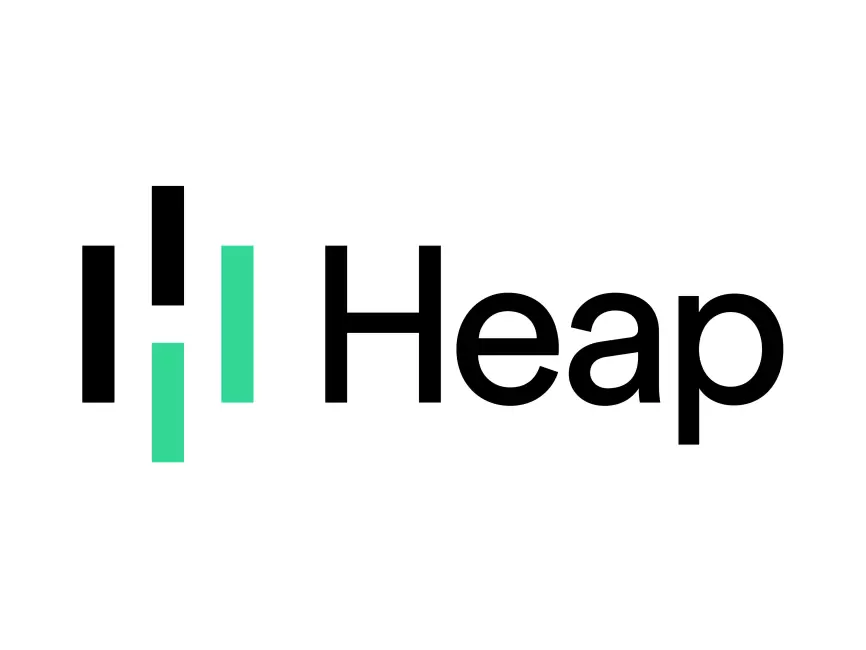In the bustling world of digital marketing, data is your compass, guiding every decision and strategy with precision. But with a sea of tools at your disposal, choosing the right analytics companion can feel like navigating through an endless maze. Two giants stand out in this digital landscape: Amplitude and Heap. Each offers unique features and insights, but which one is the best fit for your marketing needs? Let’s dive deep and find out, starting with a critical area of comparison: User Interface and Usability.
| Amplitude | Heap |
|---|---|
 |  |
| G2 Score – 4.5 out of 5 stars | G2 Score – 4.4 out of 5 stars |
| TrustRadius Score – 8.3 out of 10 | TrustRadius Score – 8.2 out of 10 |
User Interface and Usability
When it comes to selecting a marketing analytics tool, the ease of use is not just a luxury; it’s a necessity. The quicker you can navigate through your analytics platform, the faster you can make data-driven decisions that propel your marketing efforts forward. Both Amplitude and Heap promise to deliver insights with ease, but they take slightly different paths to achieve this goal.
Amplitude’s Approach to User Interface
Amplitude is renowned for its clean, intuitive interface that simplifies the complex world of data analytics. From the moment you log in, you’re greeted with a dashboard that feels both welcoming and powerful. Navigation is straightforward, with clearly labeled menus and a logical structure that guides you through its extensive features without overwhelming you.
One of Amplitude’s standout features is its flexible dashboard customization options. You can quickly create dashboards tailored to specific teams or projects, ensuring that relevant data is always at your fingertips. This level of personalization not only makes the data more accessible but also more actionable, as teams can easily monitor the metrics that matter most to their goals.
Furthermore, Amplitude excels in visualizing data. Whether it’s a complex funnel analysis or a simple user event count, the platform presents data in a clear, easy-to-understand format. Charts and graphs are not only visually appealing but also highly interactive. You can drill down into specifics with a few clicks, making it a breeze to uncover the underlying trends and patterns that drive user behavior.
Heap’s Take on Usability
Heap takes a slightly different approach to user interface and usability, focusing on automation and simplicity. One of Heap’s most lauded features is its automatic data capture. Right out of the box, Heap starts tracking all user interactions on your site or app—clicks, form submissions, page views, and more—without the need for manual setup. This means you can start gaining insights from the moment you integrate Heap, without the initial hurdle of tagging and tracking setup that many analytics tools require.
This automatic data collection extends to Heap’s interface as well. The platform is designed to make data analysis accessible to everyone, not just data scientists. Its intuitive interface allows users to create complex queries and analyses without writing a single line of code. This democratization of data means that insights aren’t locked away in a data team silo; they’re available to anyone in the organization who needs them.
Heap also shines in its ability to provide a comprehensive view of the customer journey. Thanks to its automatic event tracking, Heap can piece together a complete picture of user behavior across your site or app. This capability is invaluable for identifying friction points in the user experience and uncovering opportunities to optimize conversion paths.
Verdict on User Interface and Usability
Both Amplitude and Heap offer compelling interfaces designed to make data analytics approachable and actionable. Amplitude stands out with its customization options and data visualization prowess, making it an excellent choice for teams that rely heavily on tailored dashboards and deep data exploration. Heap, on the other hand, excels in automatic data capture and its no-code analysis features, making it a strong contender for organizations looking to democratize data access and streamline their analytics workflow.
Choosing between Amplitude and Heap on user interface and usability grounds ultimately comes down to your team’s specific needs and how you plan to use the data. Do you prefer a tool that offers deep customization and rich data exploration, or one that emphasizes simplicity and automatic insights?
Integration Capabilities and Extensibility
In today’s interconnected digital ecosystem, the ability of a marketing analytics tool to seamlessly integrate with other platforms is not just beneficial—it’s essential. Your analytics tool shouldn’t be an isolated island; it needs to communicate effectively with your entire tech stack to provide comprehensive insights. Here, we compare how Amplitude and Heap fare in terms of integration capabilities and extensibility.
Amplitude’s Integration Ecosystem
Amplitude shines brightly when it comes to integrations. The platform boasts a robust ecosystem of native integrations with a wide array of tools and services, including popular CRMs, marketing automation platforms, data warehousing solutions, and more. This extensive integration capability ensures that Amplitude can slot into your existing tech stack with minimal friction, enhancing your ability to collect and analyze data across multiple channels.
Beyond its native integrations, Amplitude also offers robust APIs that allow for custom integrations, giving you the flexibility to connect your bespoke tools or proprietary systems. This is particularly valuable for larger organizations or those with complex, custom-built tech stacks that require a more tailored approach to data analytics.
Furthermore, Amplitude’s emphasis on extensibility goes beyond just integrations. The platform supports a variety of SDKs for web, mobile, and server-side implementations, making it versatile and adaptable to a wide range of use cases. Whether you’re tracking user behavior on a mobile app or analyzing website interactions, Amplitude provides the tools necessary to capture and analyze your data effectively.
Heap’s Approach to Integration and Extensibility
Heap, much like Amplitude, understands the importance of a well-connected analytics tool. The platform offers a solid range of integrations with key marketing, sales, and product tools. Heap’s focus on automatic data capture extends to its integrations, simplifying the process of combining data from various sources to create a unified view of the customer journey.
One area where Heap particularly stands out is in its ability to retroactively apply integrations. Thanks to its philosophy of capturing all user interactions from the get-go, Heap allows you to integrate new tools and immediately start analyzing historical data within those contexts. This feature is incredibly powerful for businesses that are evolving their tech stack and don’t want to lose the ability to analyze past user behavior through new lenses.
Heap also offers a flexible API and supports custom integrations, ensuring that businesses can connect their unique systems or proprietary platforms as needed. While its ecosystem of native integrations may not be as extensive as Amplitude’s, Heap’s approach to data capture and analysis means that it can still provide deep, actionable insights by leveraging the data it automatically collects.
Making the Choice: Integration Capabilities and Extensibility
The decision between Amplitude and Heap in terms of integration capabilities and extensibility depends largely on your existing tech stack and how you plan to use your marketing analytics tool. Amplitude offers a broader range of native integrations and extensive support for custom connections, making it a strong choice for businesses with diverse tools and platforms seeking deep, integrated insights. Its flexibility and adaptability through SDKs and APIs make it a powerhouse for teams that demand comprehensive data analysis across various channels and devices.
Heap, on the other hand, presents a compelling option for businesses prioritizing ease of use and the ability to analyze historical data across newly integrated platforms. Its automatic data capture and unique approach to integration mean that it can quickly become a central hub for insights, even as your tech stack evolves.
Both platforms offer formidable capabilities in this arena, and the best choice will depend on the specific needs and nuances of your organization’s data analytics requirements.
Data Analysis and Reporting Capabilities
The true power of a marketing analytics tool lies in its ability to dissect vast oceans of data and present actionable insights. A tool might capture and integrate every conceivable data point, but without robust analysis and reporting features, those data points remain untapped potential. Here’s how Amplitude and Heap stack up in this critical domain.
Amplitude’s Strengths in Data Analysis and Reporting
Amplitude is widely acclaimed for its advanced data analysis capabilities. The platform offers a deep dive into user behavior analytics, enabling businesses to segment users, track cohorts, perform funnel analysis, and much more. Its real strength lies in the granularity of analysis it offers, allowing marketers and product teams to dissect user actions and pinpoint what drives conversion, retention, and churn.
Amplitude’s reporting capabilities are equally impressive. Customizable dashboards allow for a high degree of personalization, enabling teams to focus on the metrics that matter most to them. The platform also excels in visual storytelling, making it easier to convey complex data insights across the organization. With the ability to export reports and share insights directly within the platform, Amplitude ensures that actionable data is readily accessible to decision-makers.
Moreover, Amplitude invests heavily in predictive analytics, offering tools that forecast user behavior based on historical data. This forward-looking approach allows businesses to proactively adjust their strategies, enhancing user engagement and retention before issues arise.
Heap’s Data Analysis and Reporting Features
Heap’s approach to data analysis is built around its philosophy of capturing every user interaction automatically. This comprehensive data collection model provides a solid foundation for analyzing user behavior across every touchpoint. The platform makes it easy to construct funnels, identify key segments, and track user journeys without the need for extensive setup or configuration.
Where Heap stands out is its emphasis on simplicity and accessibility in data analysis. The platform is designed to be user-friendly, making data analytics accessible to team members regardless of their technical expertise. This democratization of data means that insights can be generated and acted upon across the organization, breaking down silos and fostering a culture of data-driven decision-making.
Heap’s reporting tools are focused on clarity and ease of use. The platform offers customizable dashboards and the ability to share insights seamlessly, ensuring that key stakeholders can stay informed about user behavior and product performance. While it may not offer the same level of predictive analytics as Amplitude, Heap provides robust capabilities for retroactive analysis, allowing teams to understand past behaviors and adjust future strategies accordingly.
Choosing Between Amplitude and Heap for Data Analysis and Reporting
The decision between Amplitude and Heap in the realm of data analysis and reporting hinges on the specific needs and capabilities of your team. If you require detailed, granular analysis and value predictive insights to guide your strategy, Amplitude may be the more suitable choice. Its advanced analytics and reporting features offer deep insights into user behavior and future trends, making it a powerful tool for data-driven organizations.
On the other hand, if your priority is ease of use and accessibility, with a focus on comprehensive data capture and straightforward reporting, Heap might be the better fit. Its automatic data collection and user-friendly analysis tools make it ideal for teams seeking to democratize data insights and foster a culture of informed decision-making.
Ultimately, both Amplitude and Heap offer compelling data analysis and reporting capabilities. The right choice depends on your organization’s specific requirements, the technical sophistication of your team, and how you plan to use the insights generated by your marketing analytics tool.

Related: Check out our free SEO suite

Pricing: Amplitude vs Heap
When it comes to choosing between Amplitude and Heap, pricing is a critical factor that can influence your decision. Both platforms offer a range of pricing tiers to accommodate businesses of various sizes and needs. Let’s take a closer look at how the pricing models of these two analytics giants compare and what you need to consider to make the most cost-effective choice for your organization.
| Amplitude | Amplitude offers several plans, including a Free plan, a Growth plan starting at $995 per month, and an Enterprise plan with custom pricing. |
| Heap | Heap offers both Free and custom-priced Enterprise plans. The Free plan supports up to 10,000 sessions per month, while Enterprise plan pricing is based on the volume of data and specific feature requirements. |
Understanding Amplitude’s Pricing Model
Amplitude’s pricing structure is designed to scale with the growth of your business. The platform typically starts with a free tier, which offers access to core analytics features but with limitations on data history and the number of events you can track. This tier is suitable for small startups or individual developers looking to gain insights into basic user behavior without a significant financial commitment.
As you move up the tiers, Amplitude’s pricing becomes more tailored to the needs of larger organizations. These paid plans introduce more advanced features such as increased data retention, higher event volumes, access to predictive analytics, and more sophisticated segmentation tools. Additionally, Amplitude offers custom enterprise solutions designed to meet the specific requirements of large businesses. These solutions include dedicated support, custom data volumes, and tailored features to suit complex analytics needs.
The transition from the free tier to paid plans in Amplitude is often driven by the growth of your user base and the complexity of your data analysis requirements. It’s important for businesses to consider not only the current but also the future scale of their operations when evaluating Amplitude’s pricing.
Delving into Heap’s Pricing Approach
Heap’s pricing philosophy mirrors its commitment to simplicity and accessibility. Like Amplitude, Heap offers a free tier aimed at small businesses and startups. This tier provides access to Heap’s automatic data collection and basic analytics features, making it a great starting point for businesses new to analytics or those with limited budgets.
As businesses grow and their analytics needs become more sophisticated, Heap’s paid plans come into play. These plans are structured to accommodate a wider range of data points, more comprehensive analytics tools, and greater customization options. Heap also provides enterprise-grade solutions with custom pricing for large organizations. These solutions offer expanded data limits, advanced security features, and dedicated customer support to ensure that large teams can make the most of Heap’s analytics capabilities.
One of the key considerations with Heap’s pricing is the extent to which automatic data capture and ease of use are valued by your organization. For companies looking for an analytics tool that reduces the overhead of manual setup and maintenance, Heap’s pricing can offer significant value, especially when considering the potential savings in time and resources.
Making Your Pricing Decision
When comparing the pricing models of Amplitude and Heap, it’s essential to look beyond just the numbers. Consider the specific features and capabilities each platform offers at different pricing tiers and how these align with your business needs. Both platforms provide flexible pricing that can accommodate a range of budgets and requirements, but the best value for your business will depend on the scale of your operations, the complexity of your analytics needs, and the importance of ease of use and automatic data capture to your team.
Additionally, it’s wise to explore potential discounts, annual billing options, and custom packages that both platforms may offer. Engaging with sales representatives can provide deeper insights into how the pricing can be tailored to fit your specific situation, potentially offering better deals than those listed publicly.
In conclusion, both Amplitude and Heap offer compelling analytics solutions with pricing models designed to scale with your business. By carefully assessing your current and future analytics needs, you can choose the platform that not only fits your budget but also supports your strategic goals with the right mix of features and capabilities.
Customer Support and Community
In the dynamic and sometimes complex field of marketing analytics, robust customer support and an active community can significantly enhance the value you get from a tool. Let’s explore how Amplitude and Heap stand out in providing support to their users and fostering communities around their platforms.
Amplitude’s Commitment to Support and Community
Amplitude has built a reputation for offering strong customer support, particularly for its paid and enterprise-level plans. Users can access a range of support options, including dedicated account managers, 24/7 technical support, and in-depth training sessions. These resources ensure that businesses can make the most out of Amplitude’s complex analytics capabilities, helping them to navigate any challenges that arise and to optimize their use of the platform.
Beyond direct support, Amplitude also boasts a vibrant community of users. Through forums, user groups, and extensive online resources, Amplitude users can share insights, learn best practices, and find solutions to common challenges. This community support complements Amplitude’s formal customer service offerings, providing an additional layer of value.
Moreover, Amplitude invests in education and thought leadership within the analytics space. Through webinars, detailed guides, and case studies, they not only help users get the most out of the platform but also contribute to broader discussions about data-driven decision-making and product growth strategies.
Heap’s Approach to Customer Support and Community Engagement
Heap also places a high emphasis on customer support, with various levels of service depending on the subscription tier. Even users of the free tier have access to Heap’s knowledge base and community forums, which can be invaluable resources for solving common problems and learning how to effectively use the platform. Paid customers benefit from more direct support options, including email support, dedicated customer success managers for enterprise clients, and priority troubleshooting.
The Heap community, while perhaps not as extensive as Amplitude’s, is growing and active. Heap encourages its users to engage with each other through community forums and social media channels. They also offer a range of educational resources, including webinars, tutorials, and blog posts that help users understand the nuances of analytics and gain deeper insights from their data.
Heap’s commitment to customer success is evident in its hands-on approach to onboarding and ongoing support. By providing tailored advice and best practices, Heap helps customers set up their analytics to capture the most relevant data from the start, ensuring they can quickly begin deriving value from the platform.
Weighing Your Options: Support and Community
Choosing between Amplitude and Heap based on customer support and community involvement depends on what level of support your team needs and how much value you place on being part of a larger community of users.
If your organization requires extensive support and values having access to a broad and deeply engaged user community, Amplitude might be the more attractive option. Its wide range of support resources and active community participation can be particularly beneficial for businesses that are scaling rapidly or that have complex analytics needs.
On the other hand, if your focus is on straightforward analytics with an emphasis on getting up and running quickly, and you appreciate direct, hands-on support to optimize your analytics setup, Heap’s approach could be more suited to your needs. Its growing community and focus on customer success through direct engagement can provide a solid foundation for businesses prioritizing ease of use and rapid implementation.
Ultimately, the choice between Amplitude and Heap in terms of customer support and community should align with your organization’s specific needs, how you prefer to engage with support resources, and the value you place on community involvement and peer-to-peer learning.
Security and Compliance
The security of your marketing analytics tool is not just about protecting your data; it’s about safeguarding your customers’ information and ensuring your business complies with global data protection regulations. Let’s delve into how Amplitude and Heap prioritize security and compliance, and what this means for your business.
Amplitude’s Security and Compliance Features
Amplitude recognizes the importance of security and compliance, especially for businesses that operate in multiple jurisdictions or handle sensitive customer data. To address these needs, Amplitude has implemented a comprehensive security framework that encompasses both physical and digital safeguards. This includes data encryption in transit and at rest, regular security audits, and compliance with standards such as SOC 2 Type II, GDPR, and CCPA. These certifications and compliances demonstrate Amplitude’s commitment to maintaining high security standards and ensuring that their clients’ data is handled responsibly.
Additionally, Amplitude offers features designed to help businesses meet their own compliance requirements. These include data management tools that allow for the anonymization of user data, granular permission settings to control access to sensitive information, and audit logs to track data access and changes. By providing these tools, Amplitude not only secures the data within its platform but also empowers businesses to manage their compliance obligations proactively.
Heap’s Approach to Security and Compliance
Heap also places a high priority on security and compliance, recognizing that trust is the foundation of any data analytics platform. Like Amplitude, Heap provides robust security measures, including encryption of data in transit and at rest, along with compliance with critical regulations and standards like SOC 2 Type II, GDPR, and CCPA. These measures ensure that customer data is protected against unauthorized access and that businesses using Heap can meet their legal and regulatory obligations.
In terms of compliance, Heap makes it easier for businesses to adhere to data protection regulations through features like easy data deletion, user opt-out capabilities, and tools for managing data access and permissions. These features not only help businesses protect user privacy but also simplify the process of maintaining compliance in a landscape of ever-evolving data protection laws.
Heap’s commitment to security extends beyond its platform, with resources and guidance available to help businesses implement best practices for data collection, storage, and analysis. This holistic approach ensures that both the data within Heap and the processes surrounding its use are secure and compliant.
Making the Decision: Security and Compliance
When comparing Amplitude and Heap from a security and compliance perspective, it’s clear that both platforms take these issues seriously, offering robust protections and a commitment to meeting global standards. The choice between them will likely come down to specific features or certifications that are particularly relevant to your business or industry.
If your organization operates in highly regulated industries or handles large volumes of sensitive data, the specific compliance certifications, like ISO 27001 or HIPAA compliance, offered by either platform could be a deciding factor. Similarly, if your business has specific data residency requirements, you’ll need to consider which platform can accommodate those needs.
Ultimately, both Amplitude and Heap provide strong security and compliance frameworks designed to protect your data and help your business meet its regulatory obligations. The best choice for your organization will depend on your specific security requirements, regulatory environment, and the level of support you need to manage compliance effectively.
Conclusion
Choosing between Amplitude and Heap for your marketing analytics needs comes down to understanding the unique strengths of each platform and how they align with your business objectives. Amplitude shines with its advanced data analysis capabilities, extensive integration options, and a strong focus on customization and predictive insights, making it ideal for organizations with complex analytics needs and a desire for deep user behavior understanding. Heap, on the other hand, excels in ease of use, automatic data collection, and its democratization of data analysis, catering to businesses looking for quick insights with minimal setup.
Both platforms prioritize security and compliance, ensuring your data is not only insightful but also protected. Ultimately, the decision hinges on your specific requirements—be it the depth of analytics, ease of integration, pricing considerations, or the level of support and community engagement you need. Whichever you choose, both Amplitude and Heap stand ready to empower your data-driven decision-making, propelling your marketing strategies forward in an increasingly digital world.
Read Next:
- SEO Analytics for Startup International Expansion: Multilingual Insights
- Utilizing SEO Analytics to Enhance Startup User Experience
- Measuring Startup SEO ROI with Advanced Analytics
- Analyzing Organic vs. Paid Search Traffic with SEO Analytics
- 31+ Top Social Media Management tools Compared! (2023)






















Comments are closed.